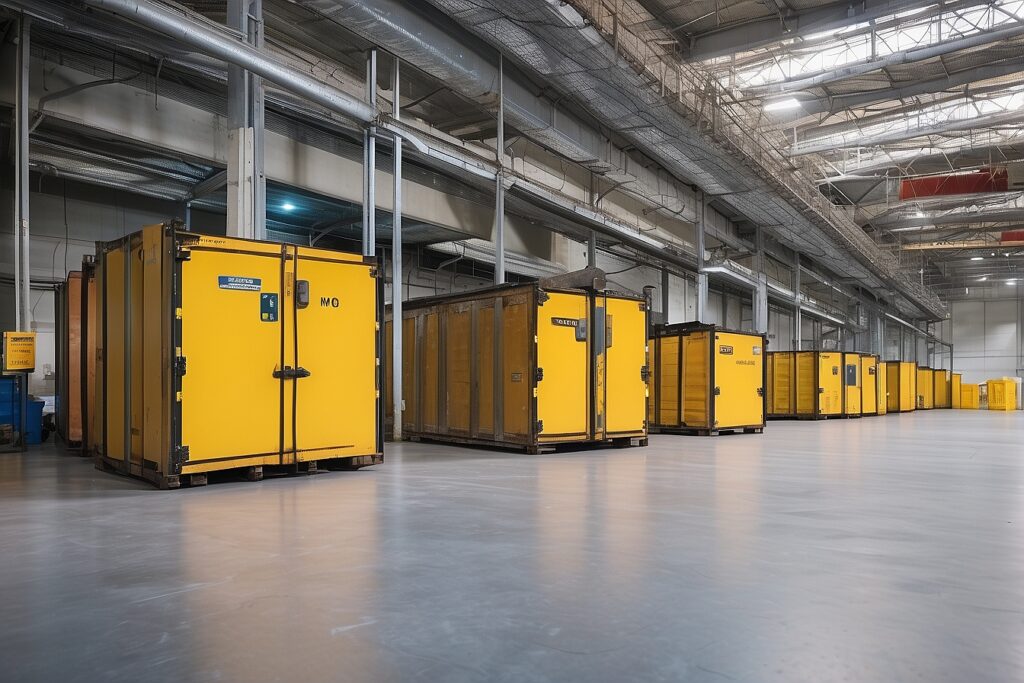JLL Anticipates Cold Storage Investment to Surpass $2 Billion by 2030 Amid Growing Demand and Technological Advancements

Cold storage facilities remain a lucrative investment prospect in Asia Pacific, offering stable returns and higher rental rates compared to other asset classes. JLL forecasts that investment in cold storage real estate across the region will exceed $2 billion by 2030, a significant increase from the $948 million recorded in 2021.
This uptrend reflects investors’ growing interest in diversifying their portfolios and meeting the rising demand for specialized facilities from end-users.
JLL anticipates a resurgence in investment in cold storage assets between now and 2030, following a contraction from its peak in 2021. This renewed interest is driven by the sector’s inherent stability, buoyed by consistent demand for perishable goods such as food and medicine stored in cold storage facilities.
Investors are attracted to the sector’s favorable leasing agreements, which typically offer higher rental rates than standard logistics and industrial properties, along with longer lease terms.
These factors position cold storage as an appealing option for forward-thinking investors seeking stable and lucrative investment opportunities in the coming years.
JLL forecasts a resurgence in investment in cold storage assets in Asia Pacific, with projected investment volumes crossing $2 billion by 2030. Despite a decline from the peak seen in 2021, the sector is expected to rebound due to several factors.
Cold storage facilities offer stability, driven by consistent demand for perishable goods like food and medicine. Investors are attracted to the sector’s favorable leasing agreements, which typically offer higher rental rates and longer lease terms compared to standard logistics and industrial properties.
Additionally, evolving consumer trends and technological advancements are expected to drive demand for more specialized cold storage facilities. The growing popularity of online grocery shopping and the rise of e-commerce have led to increased demand for last-mile delivery and cold chain logistics, further boosting the appeal of cold storage investments.
Moreover, the COVID-19 pandemic has underscored the importance of resilient supply chains, prompting businesses to prioritize robust cold storage infrastructure to ensure the safe storage and transportation of temperature-sensitive goods.
Overall, the combination of stable demand, favorable leasing conditions, evolving consumer preferences, and the imperative for resilient supply chains positions cold storage assets as an attractive investment option for forward-thinking investors looking to diversify their portfolios and capitalize on the growing demand for specialized logistics facilities in Asia Pacific.
“Although investment in cold storage experienced a slowdown compared to its peak in 2021, it remains far from reaching its pinnacle. A range of factors, including shifts in consumption habits, the rise of online shopping, and broader macroeconomic trends, will support the steady growth of this market.
This growth will be driven by a discerning group of investors seeking longer-term, sustainable opportunities,” explains Ben Horner, Senior Director of Supply Chain & Logistics Solutions, Asia Pacific, at JLL.
In recent times, heightened barriers to entry have influenced activity within the cold storage sector, attracting more specialized investors and operators. JLL analysis indicates a growing recognition that investing in cold storage demands a profound understanding of the unique complexities inherent in temperature-controlled environments, logistics, and regulatory compliance.
This realization positions operational expertise as a competitive edge for savvy investors while acting as a deterrent for others.
Moreover, to meet consumer demand for efficiency and address global disruptions in supply chains, technology investment is becoming increasingly crucial for cold storage facility investors.
Innovations in automation, robotics, and energy efficiency can significantly boost operational efficiency and reduce costs for operators over time. Consequently, investors with specialized experience in leveraging such technologies will likely have a competitive advantage.
Macroeconomic factors will also play a pivotal role in shaping the future of the cold storage sector in Asia Pacific. The region’s substantial middle-class population, coupled with rapid economic growth and rising income levels, is expected to drive increased consumption.
Private consumption in Asia Pacific has demonstrated robust growth, with a forecasted acceleration in the coming years.
Furthermore, the surge in revenue from grocery delivery in Asia, along with the expansion of the global third-party logistics (3PL) market, underscores the region’s growing demand for cold storage facilities.
This demand presents significant investment opportunities for those equipped to navigate the sector’s complexities and capitalize on its potential.
Peter Guevarra, Director of Research Consultancy, Asia Pacific at JLL, emphasizes the undeniable factors favoring the cold storage market in the region. With increasing demand and relatively stable underlying fundamentals, cold storage assets offer robust financial performance and contribute stability and resilience to investment portfolios.
Guevarra highlights the growing importance of specialized and knowledgeable investors in driving investment and ensuring the long-term viability of this essential asset class.



